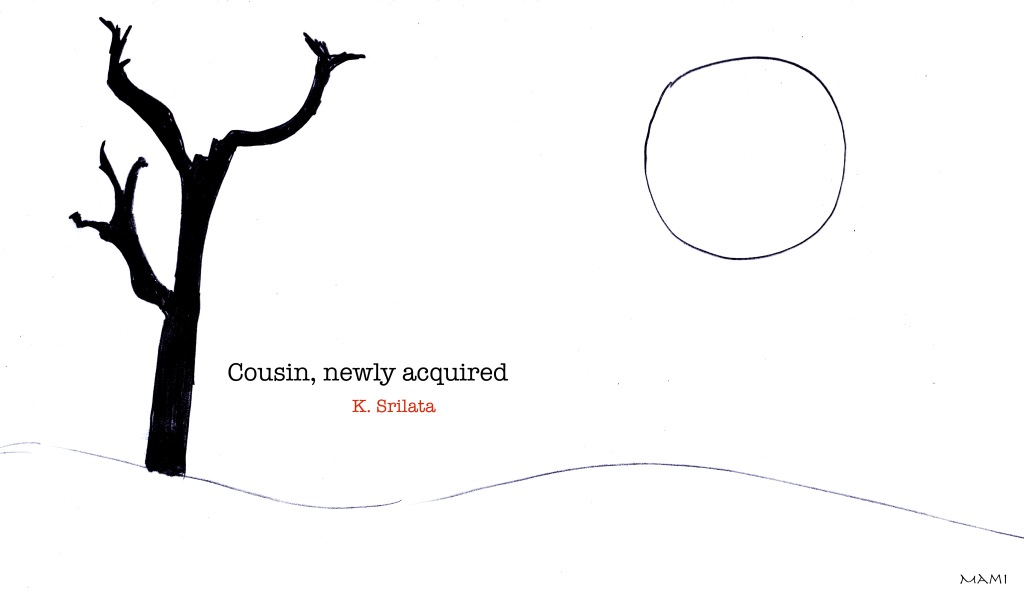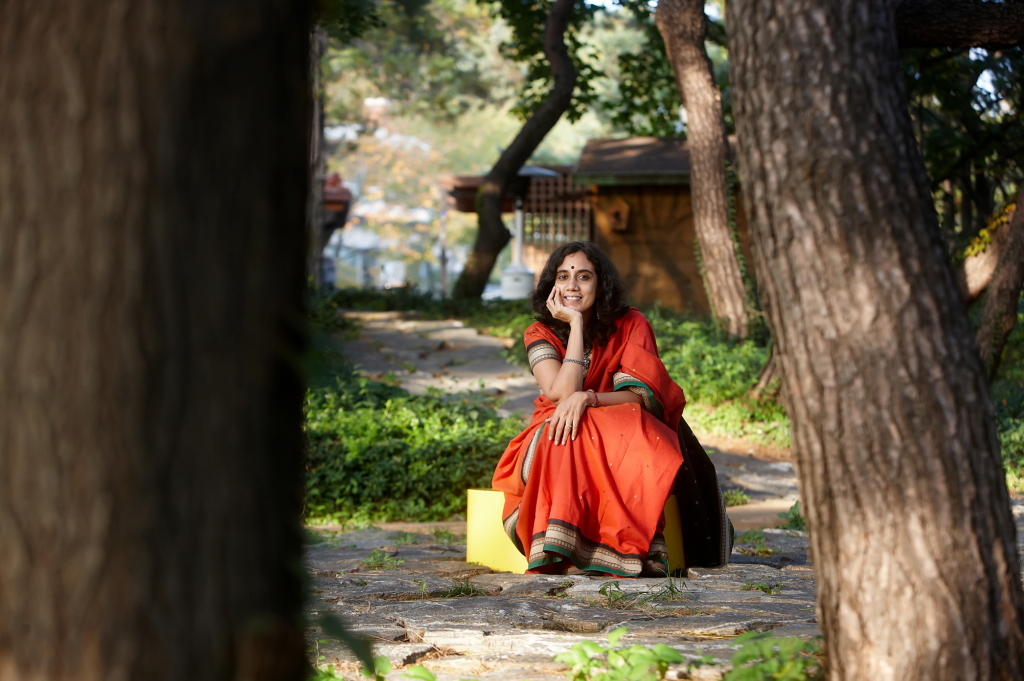(Click here to listen to the story. Read by Indrani Krishnaiyer)
From nowhere at all, that email, with its self-conscious subject line: “odd query”.
I will get to the point without further ado. Is your mother’s name Susheela? That would mean we are first cousins….
And now, my hesitant fingers were poised against the keyboard. An unsettling happiness. An unsettling sorrow. Too much to take in.
A line from Sheenagh Pugh floated into my small office. The sun will sometimes melt a field of hard-frozen sorrow. I abandon the computer and pick up the phone. “This is more than just a co-incidence, Leela,” Lakshmi says, “This is a miracle. May be you will finally make that connection.”
Sundar had visited our department only yesterday. But in the light of that email, I felt as if I had known him for years. Or, that I ought to have. He was part of a delegation from a university in Montreal. We were exploring the possibility of offering a joint teaching program. After the preliminary round of introductions were over, I sat back and became just another body in the room. It was clear to me that nothing would come of this. Tea was served afterwards, outside the meeting room. That was when Sundar approached me. He asked me what I thought of the practice in Indian universities of teaching the works of “dead, white men”.
“They are part of the canon …we really don’t have a choice,” I said, adding for good measure, “And to tell you the truth, I don’t mind Dickens and Shakespeare, dead, white men though they may be.” Sundar laughed. As we shook hands, I felt his eyes resting thoughtfully on me.
I had no idea then that he was my first cousin. On my father’s side. The dark, forbidden side.
My father had cut himself off from us following his divorce from my mother. In the long years that followed, he had made no attempt to establish contact with us. My mother was painfully aware that he had moved on in life, that he had married again, had other children. She rarely spoke of him, and I, sensing that it would cause her pain, never brought up the subject. I was aware though, from a few stray conversations I had had with her, that she believed a “clean break” was better than the mess and trauma of having to share me with my father. She may have been right, but I had no way of knowing. Going by the same principal of a clean break, she had sought no alimony or child support. I didn’t question my mother’s wisdom till I entered my teens when I was plagued by a sudden and intense desire to know my father. In the days before google, one lost people easily. Looking for them was like looking for needles in a haystack. But somehow I managed to track my father down. I began a fragile correspondence with him, overlooking my mother’s hurt feelings. Shortly afterwards, my letters began to go unanswered. I was forced to admit defeat, even though, as a face-saving measure, I put up a brave front.
And here was Sunder saying they still had my baby picture in their family album and that he had often wondered as a boy where that little cousin of his had disappeared. Was I just about to piece the puzzle together? The mess that my mother had tried so hard to avoid was on me now, a broken, runny egg. I embarrassed myself by sobbing on the phone to Sundar. He listened, sympathetically enough, saying he was glad I had emerged from those difficult, early years and done well for myself. I didn’t tell him that I had not emerged as fully as he assumed I had. In fact, I had not “emerged” at all. I was constantly walking into the lurking darkness. Was this darkness about to lift? Thirty three years colored by an absent father. Eight days of waking up to a cousin, newly acquired. It didn’t total up.
My mails to Sundar were full of hesitant questions and I got some answers. Sundar was six years older than I. He would soon be taking over as dean of the university where he taught. He was married to a Canadian anthropologist. They had a two year old son. His sister Kamakshi (another cousin, newly acquired) was my look-alike. “You could be twins,” he said. By some strange coincidence, her doctoral work, like mine, had been on the poetry of Wislawa Szymborska. Kamakshi was single and was teaching in a college in Pune. As for my father, he was in this very city. Sundar’s father – my father’s eldest brother – had passed on five years ago and his mother lived alone not very far from where I was staying with my husband. “My mother would love to meet you and your mom,” he said, “Just let me know when and I can drive down and pick you up.” My aunt…I wanted to and did not want to meet her. I told Sundar I wasn’t sure if I wanted to bring my mother into all this.
I never did meet Sundar’s family. His time in India was all too short and my son chose that very time to fall ill.
Sundar disappeared from my life as abruptly as my father had all those years ago. Montreal seemed to have swallowed him up. But he left behind the specter of an entire line of uncles, aunts and cousins. These days, when I walk into the darkness, it is no longer just my father I walk into. I walk into all of them.
***
A poet and fiction writer, Srilata is a Professor of English at the Department of Humanities and Social Sciences, IIT Madras. Srilata was a writer-in-residence at the University of Stirling, at Sangam house and at the Yeonhui Art Space in Seoul. Her debut novel Table for Four, long listed in 2009 for the Man Asian literary prize, was published by Penguin. Srilata has three collections of poems, Writing Octopus (Authorspress, 2013), Arriving Shortly (Writers Workshop, 2011) and Seablue Child (Brown Critique, 2002). She also co-edited the anthology Rapids of a Great River: The Penguin Book of Tamil Poetry. Her work has been featured in The BloodAxe Anthology of Indian Poets, The Harper Collins Book of English Poetry, Wasafiri, Recours au Poeme, Caravan, Fulcrum, The Little Magazine, Kavya Bharati and in two anthologies published by the Sahitya Akademi.

